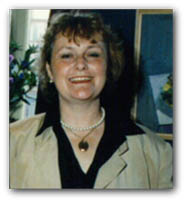Tim Spalding's brainchild, LibraryThing
Also in today's blog
Are workshops a good thing?
Huge sales? Let's hope not!
An Australian to the rescue
Readers' Review launches
On Tuesday I received this email from someone who prefers to be anonymous.
"Anne, I am a regular reader of your blog and find it a great source of interesting books… You mentioned a while ago that you are busy cataloguing your books. LibraryThing is a website that can be used to do this. It has look-ups to Amazon and reference libraries, allows imports from spreadsheets and your booklists can be viewed by your friends. It takes a lot of the tedious part out of cataloguing. I only recently came across it, but will be using it to do my bookshelves. Hope that it is of interest to you. Regards [name withheld]"

LibraryThing, I have since discovered, was designed and implemented by Tim Spalding, a web developer and web publisher based in Portland, Maine, USA. [His profile shows a photo of his dog, not of him. The stack of books shown later in this blog is also his.]
He writes, "Because everyone catalogs together, you can also use LibraryThing to find people with similar libraries, get suggestions from people with your tastes and so forth."
Since the site opened late last summer, users have catalogued over 1,310,000 books. You can enter 200 books without charge, as many as you like for $10 a year, or pay $25 for a life subscription. At the moment, while getting the hang of it, I'm taking advantage of the freebie offer and adding titles manually. [I did once attempt to use a spreadsheet. It was like grappling with logarithms at school : not a happy experience.]
 One of the users is Sylphette, real name Sarah. She has a lifetime account and has catalogued 1,562 books. Her bio tells us
One of the users is Sylphette, real name Sarah. She has a lifetime account and has catalogued 1,562 books. Her bio tells us "I'm 25 years old, and I'm a second-year Ph.D. student at Cornell. I focus on and around British eighteenth-century prose (or so I think at the moment). I majored in English and psychology at Boston College and stayed on for two more years to take an MA in English...this has left me with a lot of books! I've since learned that books are very expensive to move. I'm actually a very slow reader, which is a terrible handicap for a wannabe English prof. I can't make myself skim. I also hate leaving books unfinished, even when I dislike everything about them."
LibraryThing is a great idea. I'll be writing more about it in future blogs.
Are workshops a good thing?
Recently, at the RNA website, I read "Two of the RNA’s most loved and best selling authors, Katie Fforde [latest book Flora’s Lot] and Anita Burgh [latest book The Broken Gate], are giving a one day workshop in aid of the Cobalt Appeal Fund on Saturday 21st January 2006. The venue will be the beautiful and inspiring surroundings of a fabulous family home set on Cleeve Hill, Cheltenham."
This prompted me to email these authors. [The photos I've chosen are not their most recent press photos but they're ones I particularly like.]
"Dear Katie and Anita
In next Sunday's blog I shall be discussing the differences between the publishing world in Mary Stewart's heyday and today. I'm sure your joint appearance at Cleeve Hill, Cheltenham on Jan 21st will be a sell-out, as it would have been had Mary Stewart and Monica Dickens appeared in public together.
The big difference being that, instead of giving a workshop for would-be writers, they would have been meeting and answering questions from readers.
Many people, including Mary Stewart, believe that the ability to tell stories is inborn. Those who agree with her tend to feel that the proliferation of creative writing courses and workshops is doing more harm than good by massively increasing the size of publishers' and agents' slush piles and having other
adverse effects.
"Start your New Year off with a fantastic event which could see you on the road to becoming a successful and published author" is the promo-slogan for Jan 21st. You both know how many good mid-list authors have been dropped in recent years, and how small is the chance that any of your Jan 21st "students" will become published authors. Would you care to comment on why you agreed to give a workshop rather than make a straightforward author appearance? Regards, Anne"
Despite being extremely busy women, they took the time to reply.

Katie Fforde emailed
"To be honest I suggested a workshop because I thought it would raise more
money for the charity than a dinner with speaker event. I hate doing after dinner speaking - partly because I hate having an audience I can't see all at the same time (more or less) and secondly, I feel half the audience don't really want to be there. I have done a workshop for charity before and they are much enjoyed.
I don't think we're going to discover the next big thing either, but some of the attendees of my last course joined the local writers circle and have found a hobby they enjoy for their retirement years. I doubt if they even think of publication, but enjoy writing short stories and poetry and being with like-minded people. Its not so much about teaching people to write, which is, to a large extent inborn, as giving people a chance to express themselves.
All author appearances are at once self-advertising and entertainment. I just prefer to perform for people who really want to be there and where I have an opportunity to chat one-to-one with the audience."

Anita Burgh replied
"When I was an unpublished writer I enjoyed attending courses in writing. As a novice I learnt an enormous amount about the publishing business and how to present my work and the nuts and bolts of writing. Now it's my turn to help others and I do so willingly.
I don't think one can ever teach someone to write, they either can or not. But there is much advice and guiding that one can give especially in a small group. I also enjoy talking, giving speeches as well but then I'm a born show-off!
I have difficulty in agreeing with those who think that "the proliferation of creative writing courses and workshops is doing more harm than good." None of us have a God given right to be published and to discourage others, to me, smacks of fear of the talent coming along. I find with most students that they are realistic about their chances and I believe that real talent will always rise to the surface."
Huge sales? Let's hope not!
I ended last Sunday's blog with a note about Sarah Broadhurst's monthly Paperback Preview in The Bookseller and this time I want to comment on a book she included in the Non-Fiction Ones To Watch section. The book has a title which might cause giggles among American adolescents, The Only Bush I Trust Is My Own. The jacket is photograph of author, Periel Aschenbrand with no clothes on.

Ms Broadhurst writes, "Wow! The cover alone makes this stand out. The author will be over and she'll stand out too. Sassy, outspoken, outrageous - she could challenge Julie Burchill, no problem. This is going to be huge."
If the book does sell in huge numbers, it will tell us something depressing about today's book-buying public, or at least those who buy books at chain stores. I can't see independent bookshops stocking this title which appears to be aimed at the type of people who drive about with a million decibels of pop music blasting out of the open windows of their cars.
At Amazon US I picked up these comments
"The word "f..k'n" must appear over a thousand times in this book; it is her primary, if not only, adjective."
"Like being forced to listen to some snivelly, self absorbed mall girl on her cell phone, for hours, on a train. No, worse: in a closet. Who published this book?"
"Tarcher's back-cover copy describes Aschenbrand's debut (which sits somewhere between memoir and attempted standup) as "raunchy and hilarious," when in fact it's neither. There's a very, very big difference between "raunchy" and "obscenity for obscenity's sake." I've never been one to use the old saw about using profanity when you have nothing better to say, but it really does seem to apply here…I really can't come up with a better word than "awful." "
Whether Ms Broadhurst, an experienced and shrewd judge of books, will prove right about this one we must wait and see. One can only hope that for once her forecast is wrong.
During the week, Adrian Weston commented, "I think we should put huge heartfelt sympathy out to Sarah Broadhurst for having to wade through the mountains of marketeers gumph she must be subjected to. I'd imagine she's tempted to come up with some rather terse publishing categories of her own. It is depressing though (and I am guilty of sending her some of that gumph) - books published for all the wrong reasons. So so many of them. Still, I think Sarah does an outstanding job, and I do occasionally find books I want to read on her lists."
I agree. Ms Broadhurst's job was a lot easier 20 years ago. Today she is in the unenviable position of having to make selections from a flood of books which are mostly dross.
An Australian to the rescue
Australian author Fiona Lowe, whose first medical romance comes out in July, kindly took the trouble to email me privately about why Jenny Haddon had been unable to post a comment without registering. It was because my settings did not allow it.
I have now changed them to allow anyone to comment. Hope I've got it right this time! Thanks for your help, Fiona. I don't read many romances, but will make a point of reading your debut title.
Readers' Review launches
The first issue of Reader' Review, an independent review of self published books, lies on my desk waiting to be read. With luck, I'll have a chance to study it before next Sunday.
